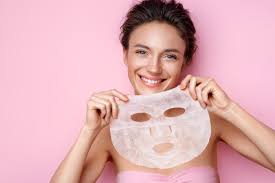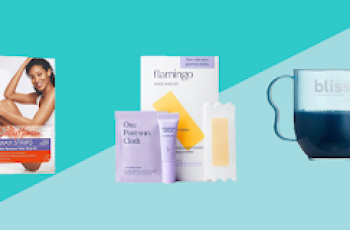
Face Masks for Skin Care
Face masks have become a beloved part of many skincare routines, but are they really necessary? In my opinion as a dermatologist, a correct custom skincare routine is sufficient for maintaining healthy skin. However, face masks can provide additional benefits for those who enjoy extra self-care. They are perfect for moments when you want to pamper yourself, relax, and enjoy some downtime. So, if you love treating yourself to a spa-like experience at home, incorporating face masks into your routine can be a great way to enhance your skincare regimen. I’ll discuss benefits of face masks, when to use them in your routine, and how to know which is right for your skin type. Make sure you know which of the 16 skin types you are so you will know which mask is right for you. If you don’t know your Baumann Skin Type, take our 3-5 min free quiz. It the same skin care routine quiz that dermatologists use.
Face masks are not essential but are a fun self care ritual
Masks can boost your routine results
Choose a mask based on your Baumann Skin Type
When to use a mask in your routine depends upon mask type
Using Face Masks in Your Skin Care Routine
Do you need a face mask in your routine? How do you choose and when do you use it? This article will discuss these issues and help you find the best face mask for your skin type.
Who Should Use a Face Mask?
Face masks are not essential, but they can be beneficial. While a correct custom skincare routine is critical for maintaining healthy skin, face masks offer extra self-care and relaxation benefits. They are perfect for those moments when you want to pamper yourself and enjoy some downtime. So, if you love treating yourself to a spa-like experience at home, incorporating face masks into your routine can enhance your skincare regimen.
Benefits
Face masks offer several benefits depending on their type and ingredients. They provide an occlusive barrier to slug active ingredients into your skin. Specific masks can boost hydration, unclog and refine pores, create even skin tone, smooth texture, remove excess oils, decrease the appearance of fine lines and wrinkles, make skin feel firmer, improve blemishes, and increase skin radiance.
Face masks provide a variety of benefits depending on their ingredients and your skin type. Here are some key benefits of different mask types:
Unclogging Pores: Clay, salicylic acid, and retinol masks are excellent masks for clearing clogged pores. They are ideal for oily and acne-prone skin. They can dehydrate dry skin types. Other ingredients to look for in clay masks include bentonite, charcoal, kaolin, and volcanic ash.
Soothing Masks: Anti-redness masks can calm and soothe irritated skin. Look for calming ingredients like aloe vera, chamomile, cucumber extract, and oatmeal.
Acne Masks : Salicylic acid masks exfoliate the skin and prevent acne by unclogging pores. Key ingredients include salicylic acid, tea tree oil, witch hazel, and niacinamide.
Hydrating Humectant Masks : These masks provide intense hydration to dry skin. Look for humectants like hyaluronic acid, glycerin, urea, aloe vera, and honey.
Oil Reducing Masks : Clay masks help balance oil production and are ideal for combination to oily skin types. Effective ingredients include kaolin clay, bentonite, sulfur, and activated charcoal.
When to Use a Face Mask in Your Routine
Applying a face mask correctly ensures you get the maximum benefits. When to use a mask in your routine will vary by the type of mask and your Baumann Skin Type.
Here’s a simple guide:
Cleanse your face to remove dirt, oil, and makeup.
Apply the mask evenly over your face, avoiding the eyes and lips. Extend the layer to your neck and décolletage.
Wait for the recommended time before removing the mask.
Rinse with warm water and a soft washcloth if necessary.
Pat dry
Face Mask After Showering
You can use a face mask after a shower. Cleanse your face using warm water in the shower. Pat face dry. While skin is still damp, apply the face mask. Follow instructions depending on the type of mask you use.
Face Mask During a Bath
The best time to use a face mask is during a bath. The warm water helps open your pores, making the mask more effective. Start by cleansing and toning your face, then apply the mask evenly. You can luxuriate in the warm bath water while the mask works its magic. After the recommended time, remove the mask and follow up with appropriate skincare based on the type of mask you used.
Types of Face Masks
There are various types of face masks available, each designed to address specific skincare concerns. Here’s a breakdown of types of masks and collections of our dermatologist-recommended masks by category:
Soothing Anti-redness Masks for Sensitive Skin
Masks for sensitive skin have soothing ingredients to calm irritated, reactive, or overexfoliated skin. This can be used after a sunburn or during a rosacea flare or after an allergic reaction to calm upset skin. Look for soothing ingredients like:
Argan oil
Caffeine
Chamomile
Cucumber
Green Tea
Licorice Extract
Hydrating Gel or Colloid Masks
These are lightweight and easily absorbed, ideal for oily or acne-prone skin. Key ingredients to look for include aloe vera, cucumber extract, green tea extract, and hyaluronic acid.
Hydrating Cream Masks
Moisture-rich and perfect for dry skin, especially in the winter months. Look for ingredients like shea butter, jojoba oil, ceramides, and squalane.
Exfoliating Antiaging, Lightening and Brightening Masks
These masks remove dead skin cells and promote healthy skin turnover. Essential ingredients include salicylic acid, glycolic acid, lactic acid, and papaya enzymes.
Clay, Mud, and Charcoal Pore Shrinking Masks
Ideal for drawing out impurities and absorbing excess oil. Key ingredients are kaolin clay, bentonite clay, sulfur, and activated charcoal. These may be called mud masks .
Acne Treatment Masks
These acne treatment masks have ingredients like salicylic acid to calm skin and get down into clogged pores to clean them out and break the acne cycle.
What To Do After Removing a Mask?
After removing a face mask, it’s essential to follow up with the right skincare so you do not negate the benefits of the mask.
Here’s what to do after using a mask based on the type of mask you used:
Clay Masks : Cleanse your skin again to remove any residue and follow with your usual skincare routine.
Sheet Masks : Simply remove the mask and apply your moisturizer directly to seal in the benefits.
Gel or Colloid Masks : Remove the mask and apply an occlusive moisturizer to lock in the humectants.
Cream Masks : Follow the instructions; some cream masks are meant to be left on, while others should be rinsed off.
Exfoliating Masks : Use a non-exfoliating cleanser to remove any remnants of the mask, then apply a moisturizer. Avoid retinoids and vitamin C immediately after using these masks.
How Often Should You Use a Face Mask?
Face masks can be used 1-3 times a week depending on your skin type and the mask type. Adjust the frequency based on your skin’s response and environmental factors. For example, hydrating masks can be used more frequently, while exfoliating masks should be used sparingly to avoid over-exfoliation. Once you take our skin type quiz, you will receive a custom skin care routine and emails that will help guide you on what masks to use, when to use them and how often to use them.
Matching Face Masks to Your Skin Type
Selecting the right face mask for your Baumann Skin Type is crucial to get the best results and avoid irritating your skin. There are 16 Baumann Skin Types, and using a mask that doesn’t match your type can lead to issues like irritation or breakouts. Make sure to determine your skin type using our quiz or consult with one of our skin care experts to get personalized recommendations. Once you know your skin type, you will be able to shop for masks using your skin type octagon.


